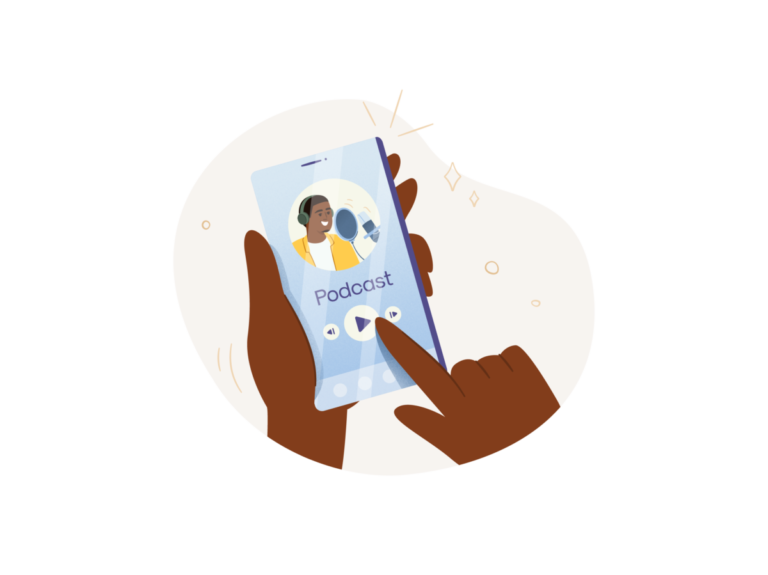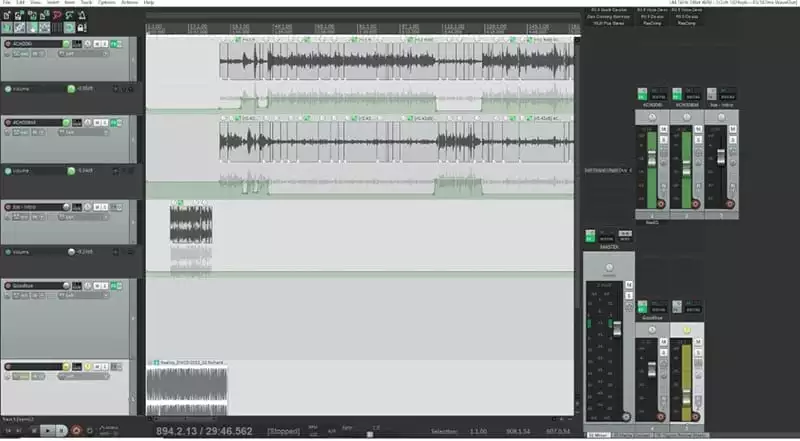Starting a podcast: what’s it all about?

Last September I launched Cracking Charity Chat – Learning from the Leaders, a podcast aimed primarily at fundraising professionals. I did a bit of research and got some advice before I started, but I’ve learnt a lot over the past six months.
Here I share my learning, so if you’re thinking of setting one up or wondering what it’s all about, you have a bit of a head-start.
Why do you want to do this?
Your motivation will inform the format, the topics and who you invite to be your guests. For me, the reasons were threefold:
Advertisement
1. My professional network
Within the space of two years I had relocated from London to Yorkshire, had two babies and gone freelance. My working life had changed and I felt geographically removed from my networks, my career to date (and let’s face it, the majority of networking and learning events) in London. I wanted the opportunity to reconnect and to engage new professional networks in a meaningful way.
2. Profile and positioning
I needed to raise my profile and position myself as someone well informed and current. I wanted this to be on a regional and national level.
3. Content
Audio content is the new blogging. It’s more accessible and is just how people are consuming media now. With only a handful of sector-specific podcasts in the UK, I felt that there was a big opportunity to get more good content out there. And I reckon most people would love to spend 30 mins hearing directly from amazing sector leaders like Kate Collins, Paul Amadi and Joe Jenkins.
Where to start?
1. Research
How will yours be different? Who is the target audience, what do you think they’ll want to hear and from who? I looked at CharityComms podcast, #domoregood and Good Leaders. Other ones to check out now include Simon Scriver’s and Third Sector. The lovely Laura Kirkwood put me in touch with James Wright at #domoregood before I launched and because we’re a carey-sharey sector, he gave me some good advice (thanks James!).
I also had invaluable advice on recording and editing from my audio engineer, as well as a friend that said “I’d listen to something work-related for about half an hour, but then I’d want to listen to My Dad Wrote a Porno”.
The result of my research: aim for 30 mins content to reflect the average commute time, don’t repeat things, and cut out the crap.
2. Get some kit
You need recording equipment and editing software. Before investing in my own recording equipment I hired it from Euan Robinson – a brilliant charity film-maker based near me (check out his People’s Vote film). This was cheaper and more flexible that hiring from a company.
For under £200, I have now bought:
- TASCAM DR40 portable recorder with a stereo input, two external inputs and SD card
- Directional mic – Tbone 96000 kit. Comes with XLR lead, shock mount and case
- Two table top tripods (available from any good photography shop)
The mic is directional, meaning that it picks up sound from the direction it is pointed, the TASCAM picks up from all around. In the future, I might get another directional mic – you can really tell the difference if recording where there’s a lot of background noise.

For editing, I use Reaper. It’s cheap, really simple to use and has slip and multi-track functionality, meaning when you cut bits, it automatically closes the gap, and you can have different mics on different tracks, so you can edit more effectively and overlay your intro music, etc.
3. Get some guests
I started by asking senior and high profile people that I’ve worked with previously to take part, to give it credibility from the start.
The exception to the rule was Marie Peacock who was Head of Income Development at Leeds-based charity Candlelighters (now at Rape Crisis); I’d seen her speaking at Fundraising Camp and thought she seemed approachable and a brilliant fundraiser, so I took a punt and asked her cold.
Similarly, once I had a few people lined up I asked Kate Collins and she said yes too – I was thrilled! My general approach is to aim high: I’d rather cope with a bit of disappointment if things don’t succeed rather than regret not trying.
I’m about to start asking for new guests from more diverse backgrounds and predominantly outside of London, to give a better sense of the breadth of the sector.
4. Get it live
I went with SoundCloud as it seemed easiest. You have to buy Premium (c. £10pm) if you upload a lot of content.
Mine is set up so that it automatically puts it on iTunes; people say this is important because iTunes has ratings, but the majority of my listeners are on SoundCloud. Podcasts also appear automatically on Google Podcasts, so people can find you regardless of the platform.
Other people use Spreaker and Spotify. #Domoregood podcast has a good set-up on Spreaker.
What I found out and going live
1. It’s a bit scary!
Having always been within an organisation, I found that putting something out in my own name was a bit scary – what if it bombed?! However, I’ve had people I didn’t know message me to say they love it and people I admire sharing it. So while it’s scary initially, it’s also a good confidence boost when you get it right.
If you’re a nervous one, get some people you admire to listen and give you feedback – you’ll be surprised.
2. Keep your brief brief
For my first recording I provided the questions but it ended up sounding a bit scripted, which wasn’t the vibe I was going for. I now give pointers and as people know their stuff, it’s easy to talk around a subject, get some real gems and then edit so you end up with only the best content.
3. Length
Statistics from SoundCloud and iTunes tell me how long people listen to it. It tends to be around 70%. I’m not sure if that’s normal – it’d be interesting to know what other podcasts get! I find that 45mins of recording with my guest results in a reasonably easy editing process to get to 30mins content.
4. Sharing and promotion
I do a short blog on each podcast drawing out the highlights for me, then I share on Twitter and LinkedIn. They are also embedded on my website. In hindsight, I would ask upfront that guests and organisations (where appropriate) share it; otherwise it’s just you and it’s hard. I know that some people use direct messages on Twitter to target specific people to read and share their blogs; I’ve not tried this yet, but might do – watch your inboxes!
[Tweet at twitter.com/LucyCaldicott/status/1097429460897415168 no longer available].
Overall, the podcast has been great for me personally and professionally. It has certainly served its purpose of raising my profile and connecting me with key people in the sector, especially on social media. So if you need an extra nudge to get you going – do it! Or give me a bell if you have something brilliant to share and we’ll see about getting you on Cracking Charity Chat.
Beth Crackles is a freelance charity consultant based in Yorkshire, working across the country. Bringing a fresh perspective and a wealth of experience advising at a senior strategic level, her work cuts through the noise and helps you to operate more efficiently, ultimately improving outcomes for users.
Primarily focusing on fundraising, strategy and planning, she works with large nationals and smaller regional charities alike, providing consultancy, training and interim support.




